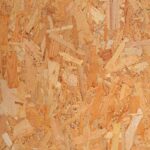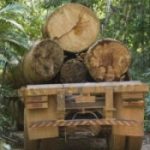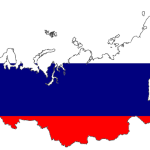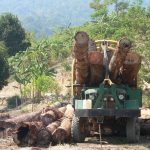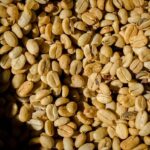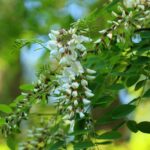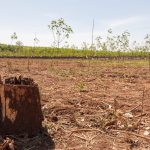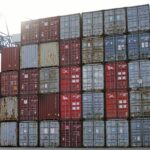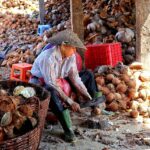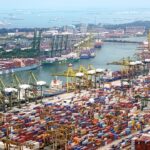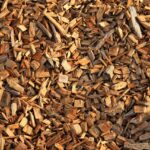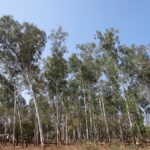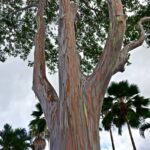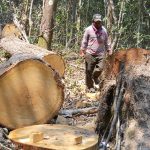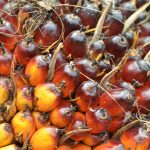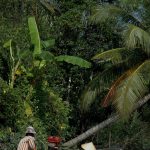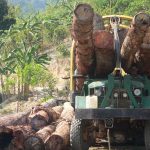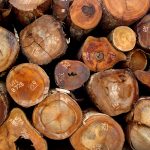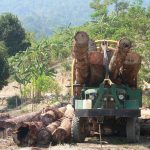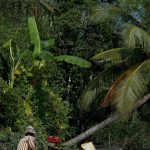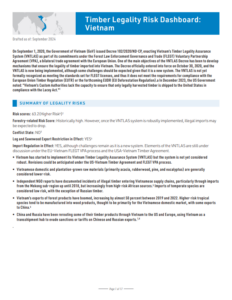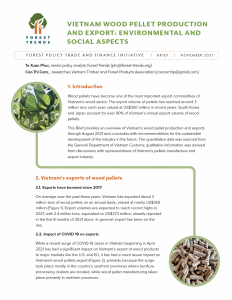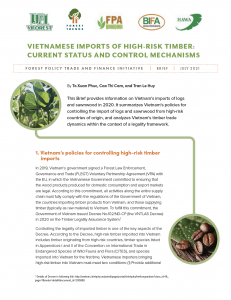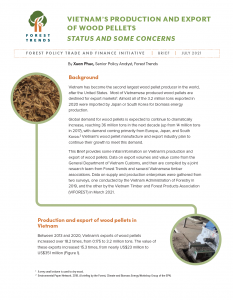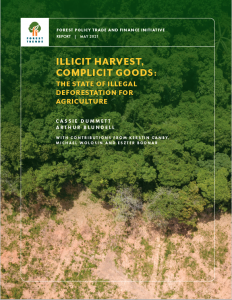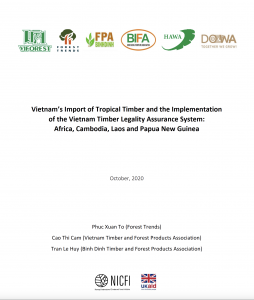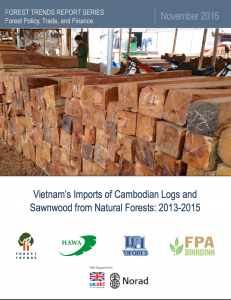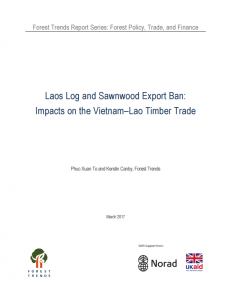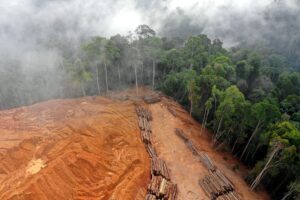
On September 1, 2020, the Government of Vietnam issued Decree 102/2020/ND-CP enacting Vietnam’s Timber Legality Assurance System (VNTLAS) as part of its commitments under the Forest Law Enforcement Governance and Trade (FLEGT) Voluntary Partnership Agreement (VPA), a bilateral trade agreement with the European Union, but which covers all timber imported and exported from Vietnam. One of the main objectives of the Decree is to develop mechanisms to ensure the legality of Vietnam’s imported timber, based on criteria which classify risks by country of origin and timber species. The Decree entered into force on October 30, 2020 but implementation was delayed until the Vietnamese Ministry of Agriculture and Rural Development (MARD) published a list of “positive” geographical regions on November 27, 2020, or those source countries deemed low-risk which, by default, also indicates that any countries not on this list are considered high-risk. While the VNTLAS is now being implemented, some early challenges should be expected given that this is a new system.
The FLEGT VPA and the VNTLAS prescribe risk classification criteria which rate the timber’s country of origin according to, among other things, the existence of a mandatory national framework on due diligence, a World Bank Worldwide Governance Indicator of zero or higher, or mandatory certification systems for national timber. Concerns have been raised about the results of this risk classification, and specifically the inclusion of some countries on the list of positive geographies released in November 2020. The timber legality risk dashboard available on this site does not use the same risk criteria as the one outlined in the VNTLAS and FLEGT VPA. In October 2020, the U.S. initiated an investigation under Section 301 of the Trade Act of 1974 to address environmental concerns related to Vietnam’s import and use of illegal timber. On October 1, 2021, the U.S. and Vietnam announced an Agreement which sets out several commitments to keep illegal timber out of the supply chain, including revisiting the risk classification.
The VNTLAS is yet to be formally recognized as meeting the standards set by the European Union Timber Regulation (EUTR) and Vietnam is not currently issuing FLEGT licenses. Vietnam will begin issuing FLEGT licenses when the timber legality assurance system has been successfully tested, and when Vietnam and the EU are satisfied that it functions as described in the VPA. In Europe, a FLEGT licence denotes complete compliance with the EUTR for European importers; however, a FLEGT licence may not in and of itself guarantee compliance with timber import regulations in other jurisdictions, such as the U.S. Lacey Act in the United States.
- Vietnam has started implementing mandatory measures blocking illegal timber imports as part of efforts to develop a Timber Legality Assurance System under the auspices of the Vietnam-EU FLEGT VPA. Some early challenges should be expected given that this is a new system.
- Vietnamese domestic and plantation-grown raw materials (primarily acacia, rubberwood and eucalyptus) are generally considered lower-risk.
- Vietnam imports between 4 and 5 million cubic meters of raw materials annually from both higher- and lower-risk sources with higher-risk imports from the Congo Basin rapidly increasing.
- Higher-risk tropical species tend to be manufactured into wood products primarily for the Vietnamese domestic market with some exports to China.
- Independent NGO reports have documented incidents of illegal timber entering Vietnamese supply chains, particularly through imported raw materials from the Mekong sub-region up until 2018, but increasingly from Africa as imports from Cambodia have dropped in the last two years. If the VNTLAS system is robustly implemented, illegal imports may be expected to drop although it will likely be several months before the effectiveness of implementation can be first assessed.
Read more by downloading the Vietnam Timber Legality Risk Dashboard here.
The US International Trade Commission (ITC) has sided with US producers of hardwood and decorative plywood (HWDP) after it found that there is a reasonable indication that imports from China, Indonesia and Vietnam “are materially injuring the US HWDP industry.” The petition – filed on May 22 – argued that imports from the three targeted countries benefit from dozens of government subsidy programs, including grants, subsidised inputs, tax breaks, and preferential loans.
It comes after the US Department of Commerce last month, announced the initiation of antidumping (AD) and countervailing duty (CVD) investigations into imports of HWDP from China, Indonesia, and Vietnam – with the petition alleging significant dumping margins as high as 540.07% for China, 84.94% for Indonesia, and 152.41% for Vietnam. Commerce is also examining 33 subsidy programs in China, 12 in Indonesia, and 26 in Vietnam.
New Forests has made its first strategic investment into the rapidly growing Vietnamese timber processing industry, with its Tropical Asia Forest Fund 2 (TAFF2) investing in the Tavico Group, one of the country’s leading suppliers of lumber and logs. Wood Central understands that Tavico, founded in 2005 as a small-scale log trader and sawn timber mill, has expanded into furniture, warehousing and modular construction. Under the terms of the deal, TAFF2 will help Tavico establish a regional platform for an integrated timber processing and plantation business, eventually taking in Laos, Cambodia, and Vietnam (the hub’s focal point).
Vo Quang Ha, CEO of the Tavico Group, said the partnership will see Tavico tap into New Forests’ global experience in sustainable forestry: “We’re well positioned to expand our impact, strengthen our value-added capabilities and continue leading the way in responsible sourcing in Vietnam. Together, we aim to help elevate the entire Vietnamese wood industry by promoting higher sustainability standards, encouraging the use of certified wood, and supporting the development of a traceable, high-value supply chain that benefits local communities and the environment.” In addition to processing, Wood Central understands that TAFF2 will also help Tavico expand on its established 3,200-hectare FSC-certified community forestry program.
The Coalition for Fair Trade in Hardwood Plywood alleges that the governments of Indonesia, Vietnam, and China are actively subsidizing dozens of programs benefiting their industries, including providing products at subsidized rates and multiple grant, tax, and lending programs. According to the petitions, hardwood and decorative plywood manufacturers in these countries are also dumping their products into the U.S. at discounted prices, with margins of up to 133.7% for Vietnam, 202.8% for Indonesia, and 474.2% for China.
Authorities indict 22 individuals, including business leaders and customs officials, in sweeping case. To illegally clear shipments through customs, Tai Loc Group companies paid substantial “under-the-table” sums to officials and leaders at the Customs Sub-Department of Port No. 2, and colluded with Bao Linh Inspection JSC to issue falsified inspection certificates for customs declarations.
IKEA and WWF have worked with local forest smallholders—individuals with government contracts to work plots of land—to certify their timber operations with the Forest Stewardship Council® (FSC®). But while buyers and manufacturers increasingly require this stamp of approval on products, smallholders have found it difficult or expensive to obtain. So starting in 2010, hundreds of smallholders formed cooperatives to exchange knowledge and resources, enabling them to collectively improve forest management practices, forge relationships with buyers, and strengthen supply chains. To date, the co-ops have helped more than 3,000 plantation owners secure FSC certification for about 60,000 acres of land.
Land allocation policies have brought about positive changes in forest protection and forestry development, helping to mobilise social resources, especially local communities, to join state forestry companies in management efforts. However, the policies’ implementation has also exposed significant gaps and limitations, particularly in land and forest management.
The management of allocated areas by forest management units has been lax, leading to unauthorised land use changes and construction of buildings. Many allocation contracts contain weak legal provisions, causing difficulties or even rendering enforcement impossible when contract violations occur.
Regulations on the rights and responsibilities of land allocators also remain unclear, complicating accountability in breaches. Moreover, there is no legal framework specifying how to handle violations by communities, groups or households engaged in forest protection activities when such infractions occur on allocated land.
Director of the Forestry and Forest Protection Department Trần Quang Bảo said that this year, the forestry sector will focus on researching and drafting an inclusive decree that revises existing laws to address the challenges within the sector.
Faced with increasingly stringent requirements from the European market, Dak Nong – one of the country’s major coffee capitals is actively implementing solutions to prove that local coffee products are not related to deforestation.
Dak Nong has proactively coordinated with international organizations such as UNDP, IDH… to mobilize technical resources, support the construction of a database of growing areas, forests and a transparent traceability system. The province calls for the cooperation of businesses in the coffee production and consumption chain.
25 models of linking production and consumption of products have been built, with a total area of 13,300 hectares of coffee with the participation of 11,324 farming households. These models are synchronously implementing traceability and complying with regulations on no deforestation.
Faced with global trade fluctuations, many Vietnamese businesses have chosen the domestic market as a survival solution. However, according to experts, the domestic market is still small and support policies are not yet consistent. Regarding the domestic market, Mr. Hoai said that the current scale is only about 5 billion USD and although it can double in the next 5 years, it is still quite small compared to export demand. In rural areas, the country has 340 wood craft villages, many of which have successfully bid to bring their products to urban markets. However, Vietnamese consumer habits make it difficult to consume mass products, which is clearly different from the US market.
In recent developments, the Thai plywood industry has been scrutinized after Vietnam initiated an anti-dumping investigation into Thai Medium Density Fiberboard (MDF) and Particleboard on September 25, 2024. This was followed by South Korea launching a similar investigation on December 16, 2024. These actions have raised concerns among Thai exporters, prompting them to formally contest these allegations.
Vietnam has emerged as a crucial market for Thai MDF, with exports valued at $60.48 million in 2024. The accusations from Vietnam stem from a perception that Thailand’s competitive pricing is undermining local industries. Meanwhile, South Korea’s investigation appears to be influenced by environmental policy changes that have increased production costs for its local manufacturers.
Recognising forest fire prevention and sustainable forestry as strategic priorities, Da Nang’s Forest Protection Department and relevant agencies have implemented proactive measures to protect and restore forests. In 2025, efforts are focused on improving forest management, applying technology for resource monitoring, and advancing forestry towards a modern, sustainable model.
The EU’s coffee imports contribute significantly to deforestation, child labor, and slavery, with millions of workers trapped in extreme poverty and forests being cleared for plantations, especially in Brazil, Vietnam, and Indonesia.
Despite industry complaints, compliance costs are minimal, and coffee supply chains are simpler than other regulated commodities; companies must take responsibility without shifting the burden onto vulnerable farmers and workers.
The global agarwood trade heavily depends on wild-harvested endangered tree species, despite international regulations for protection, with significant volumes going undocumented in official trade records, a new study reveals.
About 70% of the trade depend on Aquilaria filaria and Aquilaria malaccensis, both threatened species, sourced from the wild, raising major sustainability concerns. Meanwhile, there are some tree species that are not even covered by CITES, the global wildlife trade convention.
Due to discrepancies between CITES and customs data, along with weak enforcement and outdated regulations, researchers suggest the illegal trade is far larger than reported.
Researchers urge stronger monitoring, updated data, expanded species protection, and a shift to cultivated sources. They also call on consumers and wealthy importers to support conservation and governments to promote sustainable practices.
Japanese paper and packaging giant Oji Holdings and New Forests, a global investment manager focused on nature-based assets, announced on March 26 a US$300 million (S$401 million) fund to buy forestry estates, with the majority of the investment set to be in South-east Asia.
The fund is a reflection of increasing investor interest in forestry not only for stable returns from timber revenues but also for the climate, and increasingly biodiversity, benefits. Large timber concessions that have tracts of natural forest can also earn revenue from carbon credits by keeping the forests standing.
New Forests had nearly 912,000ha of certified forests under management globally in the 2024 financial year (July-June), with an additional 200,196ha of conservation areas, according to its latest sustainability report.
Vietnam is home to approximately 350 enterprises and factories producing wood pellets, 80 of which are actively involved in exports.
Vietnam exported over 24 million tons of wood chips and wood pellets in 2024, generating nearly $3.5 billion in revenue. Most of these products are used as fuel for thermal power plants in importing countries. South Korea and Japan remained Vietnam’s top markets, accounting for 94% of the export volume and 92.6% of the export value. The European Union ranked as the third, importing 95.6 thousand tons, valued at $15.76 million.
Nature crimes are interconnected with other serious offences like drugs and arms trafficking. Criminal networks exploit the same trade routes, concealment methods, and governance weaknesses, creating a complex web of illicit activities. In fact, nature crimes are now a key financial pillar for other organized crimes.
Over the last four years, TRAFFIC has been working with partners in Brazil, Indonesia, Viet Nam, and Cameroon to understand these overlapping threats and develop strategies to disrupt transnational crime networks while strengthening enforcement.
More than $360 million of Russian birch entered the United States via Indonesia and Vietnam last year.
In 2024, the United States imported over $62 million of birch plywood from Russia,” according to a letter from the American Hardwoods Export Council (AHEC). “However, these direct imports from Russia pale compared to the nearly $200 million of birch plywood imported from Vietnam and the nearly $160 million imported from Indonesia.”
Russian non-commodity, non-energy exports to Vietnam could expand by supplying products from the wood-processing and aluminum industries as well as construction materials, and corresponding requests have been registered by the Russian Export Center (REC) from Vietnamese partners.
Memorandums have been signed on supplying meat products during the Russian delegation’s visit. There is demand for Russian aluminum products, construction materials, ash wood products in large volumes.
This paper explores the perceptions of 114 Vietnamese companies regarding the opportunities and challenges they face in trading timber and wood with African countries. More than half of the surveyed companies imported African timber for construction, raw material resale, and furniture production. For most companies surveyed, imported African timber was used in 25 %–50 % of their products; just 10 % of companies were entirely dependent on imported African timber.
According to the report, more than 50% of wood used in Vietnamese furniture comes from Africa—which is behind China, the world’s largest importer of African timber – with more than 20% of manufacturers admitting to importing species listed under the Convention on International Trade in Endangered Species (CITES), and more than half of all African wood traded into more than 100 of Vietnam’s top furniture supply chains could not verify the origin of the timber.
Also reported on here: Know Your Wood: Why Millions of Furniture Items Could be Illegal | Wood Central
Judge Lisa W Wang from the US Court of International Trade found that Chinese traders are using Malaysia to circumvent antidumping and countervailing duties on wooden furniture, vanities and components.
Judge Wang’s opinion comes after the US Department of Commerce – in July – upheld a ruling confirming that products coming from Malaysia and Vietnam entering the US must be covered by an antidumping and countervailing duty (or AD/CVD), with the department now looking to introduce a new certification regime to ensure compliance with rulings.
On 17 December 2024, Vietnam’s Ministry of Agriculture and Rural Development (MARD), IDH and JDE Peet’s, in collaboration with local and international partners, officially launched the Database System for Forest and Coffee Growing Areas. This first ever system marks a critical milestone for Vietnam’s coffee industry as it steps up efforts to comply with the European Union’s Deforestation Regulation (EUDR).
The database platform is developed using a robust foundation of data, sourced from both public and private entities, including provincial state management agencies, local coffee enterprises, and farmers. Key datasets such as land-use planning maps, cadastral maps, and production area details have been meticulously collected and integrated into the system. To guarantee the system’s integrity and reliability, field surveys were carried out to verify on-the-ground information and address any discrepancies. This rigorous process ensures the data remains both comprehensive and accurate, serving as a dependable resource for all stakeholders. These elements ensure a comprehensive and accurate traceability system, where every coffee plantation can be tracked from farm to export. This data-driven approach helps identify and address discrepancies which should ensure compliance with the EUDR.
WWF releases a video how building more responsible acacia supply chains has improved lives, boosted business, and tackles deforestation and degradation in the Central Annamites of VIetnam.
This article highlights some discussions held at a workshop on the EUDR held by the EC delegation in Hanoi. It also outlines Vietnam’s preparedness for the EUDR for coffee, rubber and timber.
The Indian plywood industry has been struggling due to the high prices of plantation poplar and eucalypts, where prices reached an all-time high in 2024. The impact of the surge in prices resulted in some mills in north India either reducing production or even closing mills. India’s switch to pine log peeling for the production of plywood core veneer has emerged as a survivor for the sector. After successful trials at Kandla-based plywood mills, pine logs have been utilised in plywood mills throughout north India.
Meanwhile, the rise in plywood orders placed by Indian imports with manufacturers in Vietnam is reflected in the arrival in India of 1500 containers of plywood last month. Market analysts claim as many as 2500 containers of plywood could be arriving in India before the end of the year.
The Ivory Coast is steadily gaining on southeast Asian nations as a major rubber producer, buoyed by pending sustainability rules in Europe.
The West African country produced 1.55 million tonnes of natural rubber last year, according to the International Rubber Study Group. That is nearly double the 815,000 tonnes produced in 2019 and puts the Ivory Coast ahead of Vietnam in becoming the world’s third-largest producer, after Thailand and Indonesia.
Indonesia and Thailand currently produce about half the world’s natural rubber. But Indonesia, the world’s second-largest producer, saw output drop 20% from 2019 to 2.65 million tonnes last year. Unlike Ivory Coast, Indonesia is seeing a decline in the number of farmers producing natural rubber.
On October 26, the People’s Committee of Kong Chro district (Gia Lai) issued a document requesting competent authorities to investigate the illegal deforestation case that occurred in sub-area 10 of the forest area of Kong H’de Forestry Company Limited, Sro commune.
China is among the leading five consumers of Vietnamese wood and wood products and imports, accounting for 10% and 12% of Vietnam’s total wood export value. Available figures from the Vietnam Timber and Forest Products Association show local businesses are shipping more than US $14 billion worth of wood and wood products abroad, with US $1.49 billion going to China.
China is Vietnam’s largest trading partner and a vital source of imports for its manufacturing sector. The two countries are already connected through a system of highways and two old railway lines that need upgrading on the Vietnamese side. One of the planned high-speed lines would run from Vietnam’s port cities of Haiphong and Quang Ninh through Hanoi to Lao Cai province, which borders China’s Yunan province. The other would run from Hanoi to Lang Son province, which borders China’s Guangxi region, passing through an area densely populated with global manufacturing facilities, including some owned by Chinese investors.
A year-long Mongabay investigation shows that one of Cambodia’s most notorious logging companies likely illegally exported rare tree species to Vietnam and China for years.
Mongabay found evidence Angkor Plywood has been illegally logging timber from protected areas and violating various laws by exporting sawn logs — and doing all this with impunity, in part thanks to its well-connected founders.
Shipping records from 2021-2023 show Angkor Plywood exported a type of timber coveted in the furniture trade from a species it should never have been allowed to log or trade, according to a government source.
On September 24 2024, at the 29th Meeting of the “Multi-Stakeholder Platform on Protecting
and Restoring the World’s Forests,” the Government of Vietnam reported that, whilst there are still challenges in complying with EUDR, it is viewed as an opportunity to promote sustainable
agriculture and considered to be in line with government commitments to protect forests. Vietnam developed an
Action Plan Framework for EUDR compliance (enacted July 2023) that includes establishing taskforces, EUDR
communications at central and local level and with industry, piloting technical solutions, mobilising resources
and engaging in dialogue with the EU. They are developing technical guidelines for the coffee, timber and rubber
industries, although this is hampered by a lack of published EU guidance. Geodata had been collected for 100%
of coffee plots and other activities include piloting data sharing and jurisdictional traceability. Specific challenges
include inconsistences between national and EUDR definitions, lack of synchronisation of maps and traceability
for imported goods that are further processed in Vietnam.
Presentation can be found here: 3c – Presentation by Viet Nam.pdf
New Zealand is exporting increasing volumes of lumber to Vietnam, especially Radiata pine. the major growth in trade comes after the NZ-based distributors of custom-cut Radiata pine and Vietnamese furniture manufacturers signed major deals more than five years ago – including a deal between New Zealand’s Sequal Holdings Ltd. and Vietnam’s VinaFor Saigon. Radiata pine’s dimensional stability is a crucial wood property for interior fittings and joinery uses. It has low shrinkage, which contributes to its stability. It can be nailed or joined efficiently with good resistance to splitting, which is another important attribute.
Vietnam’s Huy Anh Natural Rubber has appointed Koltiva to ensure compliance with the EU Deforestation Regulation (EUDR), which mandates zero deforestation in commodities traded in the European Union. Huy Anh, a major player in the global rubber market, plans to increase its cultivation area from 3,000 hectares to 15,000 hectares by 2025 to meet the growing global demand for sustainable products.
Koltiva will use its KoltiTrace MIS platform to enhance Huy Anh’s supply chain transparency, providing tools for deforestation and legality verification with updated satellite data to ensure sustainability.
As Thailand inches forward on its decades-old vision for a “logistics corridor” connecting the Pacific and Indian oceans, local opposition and political instability threaten the plans. the proposed 90-km highway-rail link would cut across the Malay Peninsula, connecting a planned port facing the Indian Ocean in Ranong province with another port planned for the Chumphon province, along the Gulf of Thailand and with a lane to the Pacific Ocean. A special economic zone would be established nearby.
Thailand’s US $2 billion forest and forest products industries, both export and domestic, will benefit significantly from the new port. The bulk of domestic wood supply comes from plantation species such as teak and eucalyptus, but also wood derived as a by-product of agricultural processes, such as mango and durian wood. By far, the largest volume of this type of wood is rubber. Thailand is also a major timber importer from many countries, not only within the Asia-Pacific region but also from Africa, the EU and the Americas.
This is mainly processed into products that are exported again. The range of wood types and sources is broad and includes softwood from New Zealand and South America, high-quality species from Africa and the Pacific, and rubberwood and teak from Thailand’s neighbouring countries.
Forestry activities in Cameroon are expected to decline between July and September 2024 due to decreased demand, according to the Central African States Bank (BEAC) economic outlook. The bank’s report also highlights that poor road conditions and disruptions in electricity supply in forested areas are hindering the sector’s development.
This bleak forecast comes amid a progressive increase in export taxes on logs and minimally processed wood in Cameroon. This tax hike has already dampened the activity of some local forestry operators. The government says the higher export taxes are preparing for a ban on log shipments from the CEMAC region and the DRC to international markets. Set to take effect in 2028, the ban aims to boost local processing.
Cameroon’s exports to Europe have been declining, with major importers now based in China and Vietnam.
Phuc Sinh Corp, a coffee and pepper producer and exporter of Vietnam with over 14 years of commitment to sustainable development, will receive a 25-million-USD loan from SAIL Investments’ Netherlands-based & Green Fund, for developing a sustainable coffee value chain without deforestation.
Operated by SAIL Investments, a global sustainable investment manager with its headquarters in the Netherlands, & Green Fund invests in companies worldwide that can demonstrate separating commodity production from deforestation, and protecting biodiversity while ensuring social inclusiveness. The fund targets industries that lead to deforestation, such as palm oil, soybean, animal protein, and forestry.
Organic agricultural products are gaining traction among consumers due to their sustainability, safety, and nutritional benefits. However, despite the rising demand, organic farming only accounts for a small portion of Vietnam’s agricultural sector. As of late 2023, Vietnam had approximately 495,000 hectares dedicated to organic farming, representing 4.3% of the country’s total agricultural land and 0.69% of the global organic farming area.
The Party Central Committee’s 2022 Resolution No. 19-NQ/TW on agriculture, farmers, and rural areas emphasises the promotion of green, organic, and circular agriculture. By the end of 2023, Lam Dong had facilitated the creation of 10 organic production and consumption chains, which have generated higher profits for local farmers compared to conventional farming methods.
Exporters, producers urged to pay more attention to int’l standards. Many major export markets such as the EU and the US have imposed strict requirements on standards and the environment, especially green transformation for imports from Vietnam. This requires Vietnamese manufacturers and businesses to invest not only in production costs but also quality management, conformity assessments, or certifications.
Director of the Trade Promotion Agency under the Ministry of Industry and Trade (MoIT) Vu Ba Phu said that to support businesses, the agency regularly updates them on markets and their trade policies and standards for imports. Phu said that such activities have supported enterprises in finding stable sources of raw materials for export production, diversifying export markets, taking advantage of free trade agreements, strengthening connections, and participating deeply in the global value chain.
China has emerged as the sixth largest investor in Vietnam, with new projects surging sevenfold, reported the Ministry of Planning and Investment’s Foreign Investment Agency. China remains Vietnam’s largest market for agricultural products. According to the General Department of Vietnam Customs, two-way trade exceeded 100 billion USD for the first time in 2018 and soared to 171.2 billion USD in 2023, accounting for over 25% of Vietnam’s total export-import turnover.
Five lawsuits recently lodged against Vietnamese wood industry firms in crucial export markets are worrying industry insiders about more to come. They say that this makes it more likely the firms will face anti-dumping and anti-subsidy investigations from the most important export market – the U.S. Three of five lawsuits lodged in quick succession against Vietnamese wood enterprises are in the U.S. market, which represents over 54% of the industry’s total export value.
In this industry, foreign-invested enterprises (FIEs) accounted for $3.99 billion, up 22.3% year-on-year, while exports by domestic enterprises reached $5.37 billion, up 19.2% year-on-year.
Of these, FIEs accounted for $3.48 billion, or 47.3% of the total export turnover, up 19.5% year-on-year.
Although their export value was significant, the number of FIEs engaged in exports was just 669, or 20.1% of the total, but up 10.5% compared to the previous year.
The United States government is cracking down on the swell of wooden cabinets, vanities, and components (otherwise known as WCV) entering American ports from Malaysia and Vietnam (via China).
Last week, the Department of Commerce upheld a preliminary ruling, confirming that WCV products entering the United States must be covered by an antidumping and countervailing duty (or AD/CVD) – with the department looking to introduce a new certification regime to ensure compliance with rulings.
On the sidelines of the 27th ASEAN event, the Vietnamese delegation and their Cambodian counterpart signed a Memorandum of Understanding (MoU) on bilateral cooperation in forestry for the 2024 – 2029 period.
The key areas of collaboration include information and experience sharing; promoting investment in forestry, timber trade; scientific research, training, and capacity building; forest protection including fire prevention and control; ecosystem restoration, and transboundary biodiversity conservation. The two sides also pledged to collaborate in combating illegal logging and timber smuggling, illegal poaching of wildlife and plants, and adaptation to and mitigation of climate change impacts.
The US Department of Commerce has upheld its preliminary determinations on the scope of antidumping and countervailing duty orders on imports of wooden cabinets, vanities and components (“WCV”).
Commerce will impose a new certification process where both importers and exporters will be required to certify that each shipment of WCV from Malaysia and Vietnam does not contain finished and/or unfinished Chinese cabinet components, including the doors, drawer faces, and frames. Certifications must be signed for every shipment of WCV from Malaysia and Vietnam to the United States. In addition, documents supporting the certifications must be retained for five years from the date of importation.
The Monetary Authority of Singapore (MAS) has warned the city-state is vulnerable to criminals laundering the proceeds of environmental crime and is urging local banks to conduct greater scrutiny of trade transactions. Last week, MAS published the findings of a government-wide review into Singapore’s financial sector and its potential exposure to crimes such as wildlife trade, illegal logging and the illicit shipping of hazardous waste.
Later this year, Singapore is preparing to expand the scope of its existing Corruption, Drug Trafficking and Other Serious Crimes (Confiscation of Benefits) Act, which targets environmental crime laundering. The expansion would allow Singapore’s authorities to investigate offences that first take place overseas but have “no domestic equivalent”, such as illegal logging or waste trafficking.
Thousands of smallholders are now working with the world’s largest paper and packaging companies to provide certified wood chips into global supply chains.
The large-scale planting of acacia and eucalyptus monoculture plantations in Vietnam raises concerns about their long-term environmental impact on soil health and biodiversity.
This aggressive expansion also leads to fierce competition for land, often displacing local communities with limited resources. While planted forests account for about 35% of Vietnam’s total forest area (as of June 2022, with 14,790,075 hectares), those established in the past 15 years are primarily small wood plantations used for the low-value wood chip industry. Deforestation of natural forests for resource extraction and agriculture has resulted in a number of negative consequences, including increased instability of river and stream water sources, greater difficulty controlling natural disasters, and severe soil erosion.
The preliminary results of the transaction verification (TV) loop on Vietnamese wood supply chains indicate that there are some potential discrepancies in transactions reported by the certificate holders included in this TV loop.
- 98% of certified wood harvested in Vietnam was Acacia, while Eucalyptus was mostly imported. These are the two main timber species used in the production of FSC-certified wood pellets.
- Certified forest management units across the country are actively involved in growing and harvesting various timber species, including Pinus, Tectona, Styrax, and Magnolia.
- Timber species like Quercus, Tectona, and Betula are imported into Vietnam for further processing. This indicates that Vietnamese certificate holders actively engage with suppliers from diverse geographic regions, including North America, Europe and other Asian countries, demonstrating the country’s role as a key player in the international timber trade.
- A large number of chain of custody certificate holders procure timber from controlled sources. Certificate holders also make FSC controlled wood claims on biomass sector products, which are exported.
- Some certificate holders sold products with FSC controlled wood claims to non-certified companies, which is against the normative provisions related to FSC controlled wood (FSC-STD-40-004-V1, clause 5.6).
- The volume of FSC controlled wood traded in the supply chains surpasses the volume of timber sourced from FSC-certified forests.
Russia and Belarus now account for 70% of all Chinese lumber imports.
Russia is ramping up plywood production, with exports to China surging more than 344%, according to new data provided by Roslesinforg – the Russian state-owned customs agency.
The latest numbers come after China Customs reported that exports to China had tripled for March. environmental groups have flagged concerns that China is operating as a broker for Russian and Belarussian timber, with plywood made from Russian birch entering European markets via China, Vietnam and a series of “friendly countries” across Eurasia.
The preliminary results of the transaction verification (TV) loop on Vietnamese wood supply chains indicate that there are some potential discrepancies in transactions reported by the certificate holders included in this TV loop. Several suppliers declared fewer sales than the purchases reported by their customers.
The original scope of the TV loop included 424 certificate holders – 368 chain of custody and 56 forest management certificates; they were requested to submit their transaction data for 2022. However, 17 certificate holders did not respond, and their certificates were suspended by their respective certification bodies, some of which were subsequently terminated. Findings include:
- Some certificate holders sold products with FSC controlled wood claims to non-certified companies, which is against the normative provisions related to FSC controlled wood (FSC-STD-40-004-V1, clause 5.6).
- The volume of FSC controlled wood traded in the supply chains surpasses the volume of timber sourced from FSC-certified forests.
In wood product trade, Japan is one of the five biggest importers from the Vietnamese market in the world with roughly US$1.5 billion to US$2 billion each year.
During the course of a few days discussing and signing the Memorandum of Cooperation, Việt Nam shared information about the processing and trade of wood and wood products in Việt Nam, and regulations on the legality of wood to contribute to promoting legal wood production, sustainable export and trade of wood and wood pellets between the two countries.
Also reported here: Vietnam and Japan eye stronger forestry co-operation (vov.vn)
Vietnam’s wood industry has many sees Forest Stewardship Council (FSC) certification as essential for accessing global markets, particularly for its important US market.
Vũ Thị Quế Anh, a representative of FSC in Việt Nam, reported that there are currently approximately 310,000 hectares of FSC-certified forests in Việt Nam. This includes over 20,000 hectares of untouched natural forests and planted forests. The number of Forest Stewardship Council Chain of Custody (FSC/CoC) certifications in Việt Nam is rapidly increasing, with 1,730 units currently certified. Additionally, Việt Nam has various other certified FSC raw material sources, such as over 9,000 hectares of bamboo and 6,000 hectares of rubber, with rubberwood as a vital export material in the global market.
UNODC’s 2024 World Wildlife Crime Report has a case study on the illegal trade in rosewood, with a focus on Nigeria. Major players in the case study include China, India, Singapore, Mali, Guinea-Bissau, Brazil, Vietnam and Ghana.
Plywood imports from Vietnam have now tripled – with US cracking down on Chinese traders using Vietnamese ports to bypass trade regulations,
The vast majority of imports are made up of birch plywood (77% or 187,000 cubic metres), with Brazil (191,000 cubic metres), Indonesia (140,000 cubic metres), Chile (119,000 cubic metres) and Canada (114,000 cubic metres) responsible for the balance.
Vietnam Timber and Forest Products Association (Viforest) general secretary highlights the green production and trade requirements of which Vietnam’s wood products industry increasingly needs to be aware. Many major markets are strengthening import regulations and increasing technical requirements. For example, European Union (EU) countries have requested that exporters meet the Carbon Border Adjustment Mechanism regulations, as well as the EUTR / EUDR. Goods imported into the EU will be subject to a carbon tax, and businesses must convert to lower-emission production models to get carbon credits.
The recent video from northern Cambodia shows that hundreds of hectares of forest in the vast Prey Lang Wildlife Sanctuary have been subject to clearance. Activists have said that government authorities have done nothing in the years since to prevent supporters of the ruling Cambodian People’s Party from illegally exporting timber to neighboring Vietnam, a major buyer of luxury hardwood.
Lâm Đồng province in Vietnam’s Central Highlands plans to delist an area of forest a quarter the size of the country’s biggest city, Ho Chi Minh City, in a bid to legalize farmland that’s currently zoned as forest.
But an analysis of district- and city-level plans indicates an additional area more than half as large, most of which is natural forest, is also slated to be converted for a series of projects and infrastructure to serve socioeconomic development.
More than three-quarters of that additional forest conversion will go toward mining projects, compared with a fraction of a percent that will be allocated for the use of ethnic minority communities.
The forest delisting raises another concern: for every hectare of forest it converts, Lâm Đồng must reforest a hectare elsewhere — triple if it’s natural forest — and the province simply doesn’t have enough land available to do that.
International technology group Andritz has successfully started up its second tissue production line at Xuong Giang Paper in Song Khê – Nội Hoàng Industry Park, Bắc Giang Province, Vietnam.
With this new line using virgin pulp (as opposed to recycled) Xuong Giang Paper’s tissue capacity will reach up to 72,000 tons per year.
Vietnam’s government is investing in carbon markets to create a social and financial dividend for local communities to replant trees and drive its green economy. So far, locals are sharing in more than US $5 per tonne of carbon and hope the price will jump much higher if global leaders agree to an international carbon credit market. The upshot is that Vietnam, thanks to a 2022 government decree (107/2022/ND-CP), has established a new carbon market in the heavily forested North Central region, providing financial incentives to indigenous communities to manage forests for long-term health.
But it’s not just natural forests that are benefiting from the shift to carbon markets. The government and local communities are now using carbon markets as an investment vehicle to expand their timber plantations—an ambitious plan to plant 1 billion trees and grow their PEFC and FSC certification area to 1 million hectares by 2030.
As global tea demand grows by over 2% annually, the pressure on land for cultivation may lead to increased deforestation and greenhouse gas emissions, further intensifying the impacts of climate change. Once tea is plucked it must go through various stages of processing, including withering and drying: energy-intensive processes that often use vast amounts of wood or, in some cases, fossil fuels such as coal. This not only results in CO2 emissions, but also has the potential for “hidden deforestation” for wood to burn.
In May 2023, Cameroon’s Douala Seaport came under scrutiny when a customs official stamped a shipment of timber, unveiling a complex web of illegal exports from West and Central Africa. This incident spotlighted the notorious Wagner Group’s involvement through Wood International Group, a company under US sanctions since last September. The Wagner Group’s operations in Africa, often in exchange for access to natural resources, underscore the blurred lines between legal and illicit economies.
Douala has long served as a critical juncture for illicit timber, sourced not only from Cameroon but also from neighboring countries, to be laundered through seemingly legal operations. Sawmills and warehouses proximate to Douala and Kribi ports facilitate this laundering, with China and Vietnam being the prime destinations for these exports.
Trần Quang Bảo, Director of the Forestry Department under the Ministry of Agriculture and Rural Development addressed the press regarding future forest management strategies, particularly in light of the recent implementation of the Land Law 2024.
The Vietnamese government is now turning to tax concessions, reviewing the land reserves and small-sized timber forests that are eligible for development, and promoting sustainable forest management and forest certification to drive a forest economy. The push to grow the country’s productive forests comes amid mounting pressure for the government to reduce heavy reliance on imported “at risk” hardwood species.
However, plans for further plantings could be under threat as local government authorities push for agricultural conversion rather than afforestation.
A senior Cambodian official notorious for illegal logging appears to be carving out a vast swath of forest in what’s supposed to be a protected area in the country’s north.
After the processing of cashews declined in the past few years, the sale of timber from Santana Agro’s cashew factory increased, with allegations that the company had hired outside loggers and colluded with members of the community to gut the forest of all the valuable timber species.
Shipments of timber transported by trucks from Cameroon, the CAR and Congo-Brazzaville pass through the port hub of Douala and Kribi supply markets in China, Vietnam, France, Spain, Germany, etc. A volume of timber that could soon double thanks to the new multi-purpose quay of the wood terminal of the port of Douala inaugurated on March 29, 2023 .
According to the report “State of the forest-timber sector in Central African Republic (2021)”, between 2017 and 2021, 1,473,882 m3 of timber were exported in logs from the CAR, as compared to 78,439 m3 of sawn timber. SCAD, other Besides companies in the timber sector in the CAR, such as SOFOCAD, SEFCA and CENTRABOIS, make regular trips to the port of Douala (Littoral), as well as to the deep-water port of Kribi, in the south of Cameroon .
In addition to timber from the Central African Republic, the Port of Douala’s Timber Terminal also receives shipments from northern Congo-Brazzaville, where the forest sector generates a turnover of about 100 billion CFA francs a year and contributes 20 billion CFA francs to government tax revenues .
The strict Forest Stewardship Council certification regulations pose both challenges and opportunities for the Vietnamese timber industry. One of the largest retailers in the United States, is seeking to procure FSC certified wood products from Vietnam. Vietnam has seen increased demand for FSC-certified timber materials due to requirements from import markets.
A short summary in the January 2024 ITTO MIS Report on Vietnam’s expansion of FSC-certified forest area, increased demand for certified products from major markets in the US and Europe, and challenges obtaining certified product from abroad.
Southeast Asia has never been an easy place for activists, but a worrying trend emerged over the course of 2023 that saw environmental and Indigenous activists increasingly placed in the crosshairs of authoritarian governments as a result of their activism.
Mongabay presents a short summary of status of illegal logging and forest governance in SE Asia.
The food industry says it is running out of time to prepare for new EU rules to cut carbon emissions from the supply chains of several key commodities, accusing Brussels of issuing proposals that lack detail and will fail to stop deforestation.
Vietnam stakeholders fear that the EU will will be in a disadvantageous position if the EU labels VIetnam coffee with the highest risk of deforestation as the basis for national risk labeling.
At the conference on the afternoon of November 4, representatives of authorities, associations and businesses said that the biggest difficulty that agricultural supply chains in Vietnam are facing when meeting new EU regulations is a database to locate forest areas, trace origin, and deploy an anti-deforestation monitoring system.
Because the preparation time until this regulation begins to apply is less than 18 months, it is necessary to urgently review products in the most risky areas in the agricultural supply chain, especially the smallholder sector. Accordingly, there needs to be a plan to collect and process information from millions of farming households according to new regulations on anti-deforestation.
According to data from the Department of Forestry (VNFOREST), Vietnam currently has a total forest area of approximately 14.74 million hectares, with planted forests making up 31 percent and natural forests constituting the remaining 69 percent. The objective for the year 2025 is to attain an export value of US$18-20 billion for the forestry sector and to reach $23-25 billion by 2030.
Currently, there are over 6,000 forestry export companies operating across the country, and the major enterprises are mainly clustered in Ho Chi Minh City, Dong Nai, and Binh Duong. Previously, raw materials had to be imported from other countries, but now, import volumes have decreased gradually thanks to the proactive cultivation of raw materials.
According to Mr. Vu Thanh Nam, Head of the Forest Utilization Department of the VNFOREST under the Ministry of Agriculture and Rural Development, Vietnam’s forested area has been rapidly expanding in recent times thanks to effective land allocation and forest management. Forests not only have proprietors but also facilitate forest growers in consuming the products they cultivate, thus aiding in reaching the designated forest cover objectives.
European Union rules aimed at stopping deforestation threaten widespread disruption for Southeast Asia’s rubber sector, from Cambodia’s 30,000 small farmers to major exporters in Thailand and Malaysia.
The concern for Southeast Asia, critics say, is that these requirements will disproportionately hurt small farmers while failing to adequately address rubber’s role in deforestation.
It is anticipated that Vietnam’s cocoa, coffee, and rubbers will be highly exposed to the EUDR, as Vietnam currently export a significant proportion of these products to the EU markets. Coffee will be the most impacted, given more than 45% of all Vietnamese coffee production is destinated to the EU, followed by cocoa (34.3%) and rubber (14.6%). For wood and wooden products, Vietnam’s current key markets are the United States, China, and Japan; therefore, the exposure of this industry to the EUDR is relatively lower than the three products mentioned above. However, as many countries are taking measures to mitigate climate change impact, they might adopt similar measures to that of the EUDR in the future.
The deforestation caused by the rubber farming in Thailand and the world has been significantly underestimated, according to new findings from two scientific studies, with Southeast Asian rubber production potentially contributing up to three times more forest depletion than previously thought.
With over 4 million hectares of forest lost for rubber production since 1993, an area the size of Switzerland, “the effects of rubber on biodiversity and ecosystem services in Southeast Asia could be extensive,” according to a paper published on Wednesday in the journal Nature.
In Southeast Asia, mature rubber plantations covered 14.2 million hectares. Indonesia, Thailand, and Vietnam accounted for more than 70% of these plantations.
China, Malaysia, Myanmar, Cambodia, and Laos were also important rubber-producing countries. Rubber plantations that were closed down before 2021 were excluded from the analysis, despite the fact that they may have contributed to deforestation.
The Netherlands is Europe’s largest importer of deforestation-linked products with a surge in wood and wood-based products from China and Brazil. The Dutch are the largest importer of soy, palm oil and cocoa and, most significantly, the region’s second-largest importer of wood products. Of the total imports that transition through the port, 28% are re-exported abroad, 33% are traded into European markets after processing, and 39% remain in the country for direct consumption or secondary processing.
As a result of its place in the global trade, the government of Netherlands has been urged by some producer countries to push back on the EUDR.
Nearly two years after the reaching an agreement that avoided Section 301 tariffs on imports from Vietnam, the U.S. indicated concerns about Hanoi’s implementation of that agreement.
The EU is the largest coffee importer from Vietnam. In 2022, Vietnam exported to the EU 689,049 tonnes, worth nearly 1.5 billion USD, up 25.8% in volume and 45.4% in value compared to 2021. Being impacted by the new EU law, Vietnamese coffee exporters now have to ensure that the coffee they export is not linked to deforestation.
According to the Vietnam Coffee and Cocoa Association, coffee farmers in Vietnam face a major difficulty in ensuring traceability. They usually grow coffee in small areas which are mostly about 0.5ha or less.
To achieve the export value target of US$17 billion this year, Deputy Minister MARD Trị has requested the Administration of Forestry and the Việt Nam Timber and Forest Products Association (Viforest) to update wood processing facilities in craft villages on legal timber policies and regulations.
The article also mentions interest in State management agencies needing to review and cut administrative procedures, and perfect institutions and policies to create favourable conditions for the import and development of wood materials from domestically planted forests with sustainable forest management certification. This reflects that exporting enterprises still have difficulties in getting verification of wood origin according to regulations, leading to many obstacles in the process of receiving certificates of origin (C/O) for export products.
The Ministry of Finance is requested to coordinate with the Ministry of Agriculture and Rural Development and the Ministry of Industry and Trade to organise conferences with wood exporting enterprises to find solutions removing difficulties in VAT refund and verification on origin of timber from domestically planted forests.
Viforest officials also suggested that the Ministry of Agriculture and Rural Development hold negotiations with importing countries to set up united regulations on timber traceability for Việt Nam’s export wood products.
The world’s largest agriculture producers are pushing back against new European Union rules that require proof that crops weren’t grown on deforested land, which producers say will add to the cost of making food.
Examples and quotes from government and industry players in Brazil, Vietnam, Cote d’Ivoire and Ghana cited.
The new EU regulation mandates trade companies to adhere to strict rules on the traceability of their products.
Vietnam, the second biggest coffee exporter in the world, is bracing for compliance challenges over a new anti-deforestation trade law by the European Union.
Europe is Vietnam’s biggest market for coffee. About 50 to 60 per cent of the Southeast Asian nation’s total coffee exports head there each year.
Last month, prominent environmental defender Hoang Thi Hong publicly welcomed news that fellow climate activist and Goldman prize winner Nguy Thi Khanh had been released from prison, after being charged and sentenced for ‘tax evasion’ in 2022.
But days later, Hong was arrested on similar charges. This week she has reportedly been charged with evading more than five billion dong in tax – around £173,000.
As the fifth activist arrested in Vietnam in the last two years, Hong’s detention is part of a troubling pattern of seemingly politically motivated attacks against environmental defenders in the country.
According to the Trade Remedy Bureau of the Ministry of Industry and Trade of Vietnam, the US Department of Commerce (DOC) continues to extend the time for the final conclusion of the anti-tax evasion and anti-dumping investigation on plywood using hardwood material imported from Vietnam. This underscores for Vietnam the need for traceability systems that can verify the country of origin for wood products.
The US Department of Commerce will issue its final conclusions on July 14, 2023. This is the eighth time the Commerce Department has delayed issuing its final conclusion.
For one year, The world And InfoCongo met with dozens of timber traffickers, residents and drivers of illegal logs in Cameroon. Their testimonies, as well as official documents from the Ministry of Forests and Wildlife (which did not wish to answer our questions), show that illegal logging is accelerating.
A prominent climate activist in Vietnam was detained on Wednesday in what human rights experts say is the latest case of the country’s ruling Communist Party suppressing civil society. The arrest came weeks after dozens of environmental and human rights groups urged President Joe Biden and other world leaders to pressure Vietnam on its human rights practices before industrialized nations send the country billions of dollars to fight climate change and boost its economic development.
The United Nations says Hoang Thi Minh Hong, founder of the environmental group CHANGE VN, was arrested on charges of tax evasion. The UN says Hoang is the fifth high-profile climate activist in Vietnam who has been charged with tax evasion in the past two years. Human rights experts say the Vietnamese government is arbitrarily enforcing the law to target civil society groups.
Thailand, Laos and Myanmar are at the frontlines of illicit trade in Asia dominated by transnational organized crime syndicates.
The trafficking in illegal narcotics, precursor chemicals, timber and wildlife, people and illicit goods across Southeast Asia is being tackled thanks to the support of the specialized UN agency focusing on drugs and crime.
The US Department of Commerce (DOC) recently
unveiled an extension of the deadline for issuing its final
conclusion on a trade remedy duty evasion probe into
hardwood plywood imported from the Vietnamese market.
This marks the sixth time that the DOC has announced an
extension, with the final determination expected on 2 May.
In July 2022, the DOC announced the preliminary
conclusion of the case, saying that plywood from Vietnam
using materials from China should be subject to the same
anti-dumping and anti-subsidy duties applied to the
northern neighbour.
In February 2023 the Ministry of Industry and Trade in Vietnam issued Resolution No. 235/QD-BCT making a final and definitive anti-dumping ruling on tables, chairs and accessories from China imposing an anti-dumping duty of 21.4% on chairs and 35.2% on tables and accessories from China.The Vietnamese tax HS codes of the products involved are 9401.3000, 9401.4000, 9401.6100, 9401.6990, 9401.7100, 9401.7990, 9401.8000, 9401.9040, 9401.9092, 9401.9099, 9403.3000, 9403.6090 and 9403.9090. The measures will take effect from 13 February 2023.
Many wood artisans are in need of support so that their works can get recognition in the global supply chain.
This article summarizes the challenges faced by local wood artisans, and models for ensuring the legality of their wood products.
Facing the increasingly difficult export situation, domestic wood associations have linked together to expand markets, seek customers, and promote trade.
The Forest Protection Department of Binh Thuan Province, on February 5, said that it reported the inspection and verification results following the direction of the provincial Department of Agriculture and Rural Development related to the large-scale deforestation that occurred in the Ta Cu Nature Reserve in Ham Thuan Nam District in Binh Thuan Province.
HO CHI MINH CITY, Vietnam — Russian birch wood has continued to flow to American consumers, disguised as Asian products, despite U.S. economic sanctions imposed on Russia over its invasion of Ukraine, a new report says.
HCM City (VNS/VNA) – Contrary to full orders at the beginning of the year, Vietnamese wood and wooden furniture enterprises are currently facing many difficulties due to the cancellation of orders by customers because of inflation in countries such as the US and the EU and the sharp increase in input material costs.
In fact, Vietnam’s wood industry is seeing declining sales overseas.
The export value in July was estimated at 1.41 billion USD, down 5.5% against June and down 1.6% year-on-year, according to a report of the General Department of Forestry under the Ministry of Agriculture and Rural Development (MARD).
VIETNAM, August 27 – HÀ NỘI — The US Department of Commerce (DOC) has not yet issued the final determination on the imposition of anti-dumping and countervailing duties on certain hardwood plywood products and veneered panels exported from Việt Nam.
The Việt Nam Timber and Forest Products Association (VIFOREST) has confirmed that the DOC on April 15 extended the deadline to issue a final determination to October 17.
The DOC initiated the anti-dumping and anti-subsidy investigation on hardwood plywood from Việt Nam on June 17, 2020, to enforce the trade remedies measures on Chinese hardwood plywood.
The US is currently applying anti-dumping of 183.36 per cent and anti-subsidy duties from 22.98 per cent to 194.9 per cent on hardwood plywood products from China.
On July 25, DOC announced its preliminary determination that hardwood plywood exported from Việt Nam, which was assembled in Việt Nam using hardwood plywood imports sourced from China, were products of China and were subject to the anti-dumping duty and countervailing duty orders on hardwood plywood from China.
While many products exported to the UK enjoyed strong increases thanks to the UK-Vietnam Free Trade Agreement (UKVFTA), Vietnam’s timber industry is facing difficulties in expanding in this market, requiring manufacturers and exporters to change their business strategies.
Vietnamese Authorities are considering a management and conservation plan for two of their most valuable native tree species. The plans, which have been proposed by the Center for Nature Conservation and Development (CCD) Viet Nam, are for the two species of rosewood (Dalbergia cochinchinensis and Dalbergia oliveri). They are among the most sought-after trees in international trade for high-end furniture and decorative products. The wood has a high commercial value and is well-known for durability, corrosion and termite resistance and has been extensively used in construction and furniture making. As a result, both tree species have been the most heavily exploited and traded species in Viet Nam and many other countries. The wild populations are now small and fragmented and without proper conservation and restoration measures, are at high risk of extinction in many parts of the country.
Despite new regulations to clean up Vietnam’s timber sector, importers continue to bring large volumes of tropical hardwood into the country from deforestation hotspots in Africa and Asia for use in products sold domestically.
In 2018, Vietnam signed a Voluntary Partnership Agreement with the EU to eliminate illegal timber from the country’s supply chains and boost access to the strictly regulated European markets.
Cambodia and Vietnam have expressed their commitment to strengthen forest sector cooperation, mainly combating the cross-border trade of timber and wild animals.
United States Trade Representative Katherine Tai announced an agreement with the Socialist Republic of Vietnam that addresses U.S. concerns in the Vietnam Timber Section 301 investigation. This is the first 301 investigation to address environmental concerns. The Agreement secures commitments that will help keep illegally harvested or traded timber out of the supply chain and protect the environment and natural resources.
Click here to access the Global Illegal Logging and Associated Trade (ILAT) Risk assessment tool and to download the Forest Trends User Guide describing the functionality of the ILAT Risk Data Tool.
Click here to access the Cattle Data Tool.








